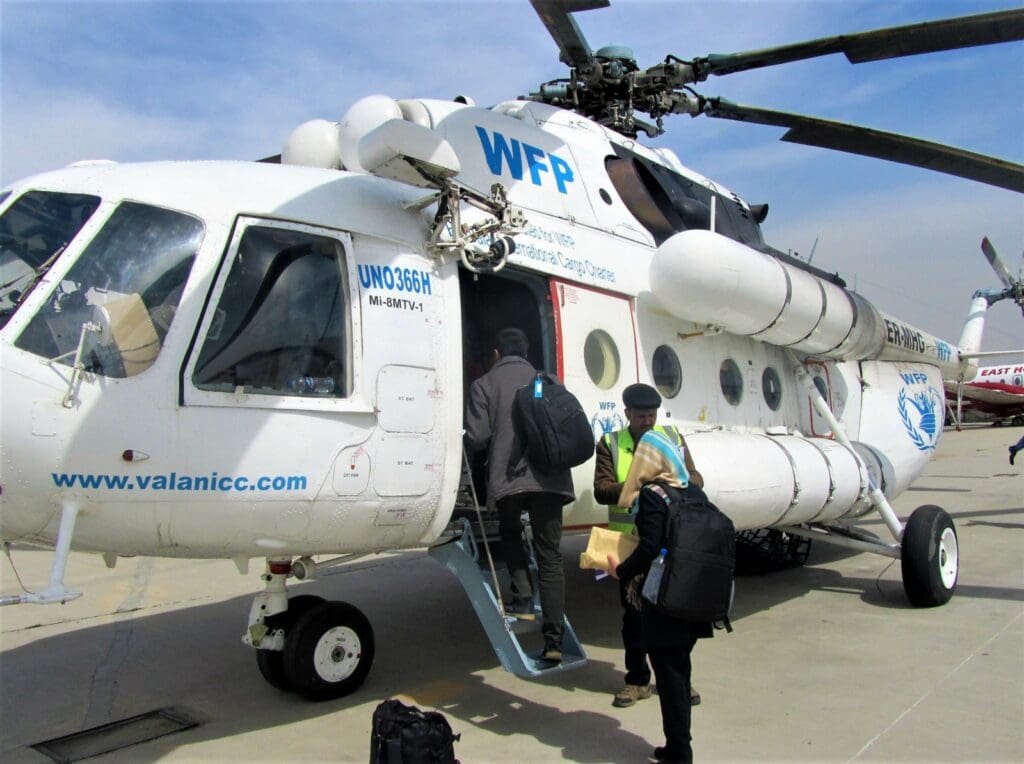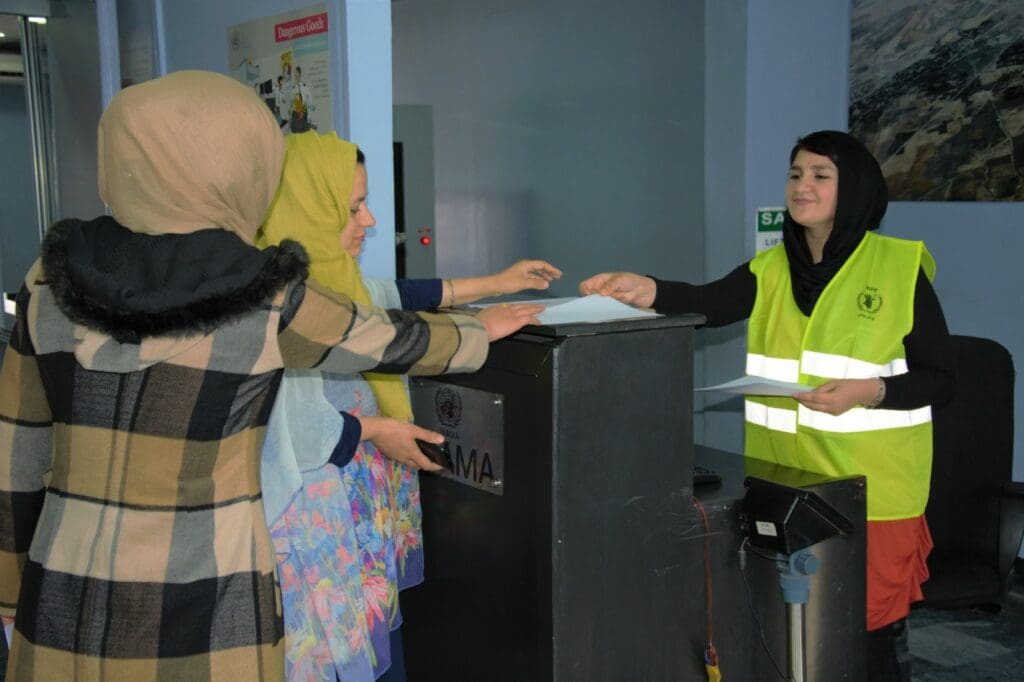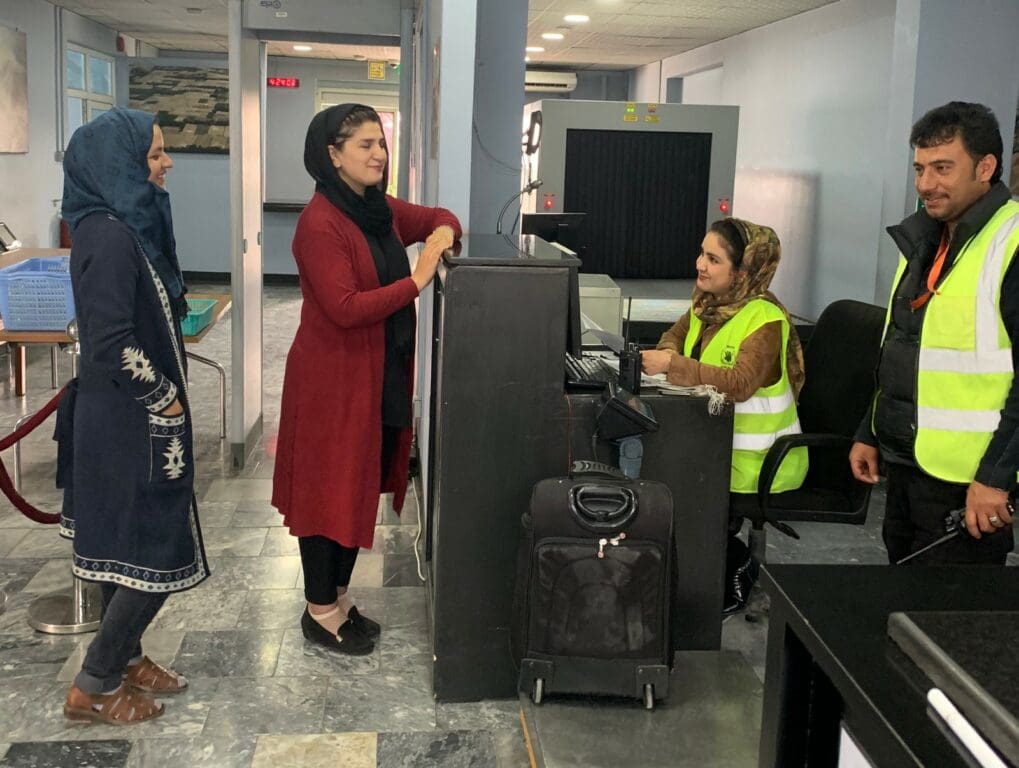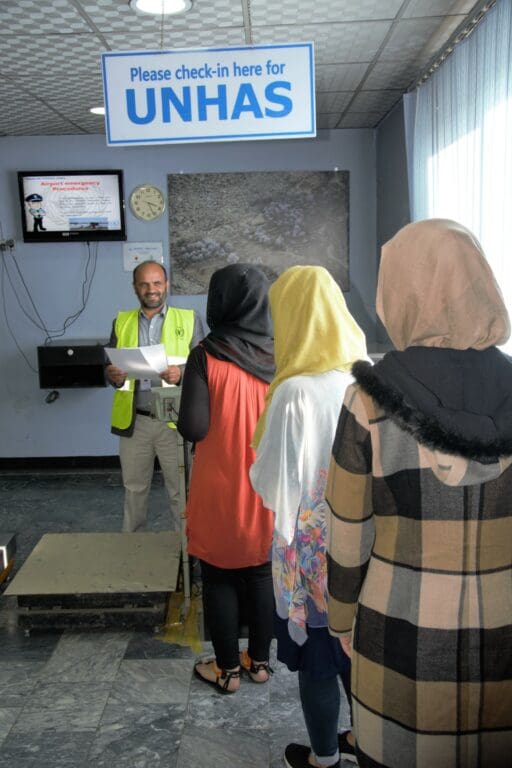Flying Towards Gender Equality

In 2018, the UN Humanitarian Air Service (UNHAS) flew an average of 25,000 passengers around Afghanistan. For humanitarians, this airline plays an important role in getting staff to where they are needed the most.
Seventeen UN agencies and 140 NGOs rely on UNHAS each year to help them to reach some of the most isolated parts of the country. But currently, around 90% of passengers are male. This means that only 200 women per month are using UNHAS’ services.

Women currently make-up just 10% of UNHAS passengers, but now it’s easier for them to fly.
In order to encourage more women to travel to the field, UNHAS is implementing a new incentive: female Afghan passengers on official humanitarian travel will fly at a reduced price of $50 per one-way ticket, while typical ticket prices range from $150 for NGOs to $300 for UN and others. This is an important step towards supporting more women to take to the skies and reach the most vulnerable.

It is now cheaper and easier for females to fly in Afghanistan.
The Chief of UNHAS in Afghanistan, Conny Akerstrom, explained, “At WFP, we advocate for gender equality and understand the importance of having women involved in all areas of humanitarian work. UNHAS is launching this initiative to support women’s participation in activities across Afghanistan, where they can make a big difference.”
“Even though UNHAS is facing a funding shortage right now, we think it’s important not to wait to promote these kinds of gender equality initiatives and expect the increase in female passengers to offset the discounted price.”

Female humanitarians will now be better able to support women in remote locations.
There are many reasons for the disparity in travel frequency between men and women in Afghanistan, some due to organizational structures, staffing and the nature of work in a country where gender inequality continues to be a major societal issue. In certain cases, women need to travel with a mahram, or male escort, which doubles the price of traveling and is not cost-effective for organizations with tight budgets.

An UNHAS staff member assists with boarding on the tarmac. In Afghanistan, the fleet consists of three planes and one helicopter which provide access to more than 20 destinations around the country.
The price reduction will roll out on April 2 for an initial period of six months, with the goal of increasing women’s participation in humanitarian activities across the country. In a culture where women and men may be separated for certain daily activities, particularly in rural and remote communities, female staff have the most access to other women who may need assistance, and therefore can play an increasingly essential role in field missions.
Many UNHAS destinations are in remote areas without proper runways for commercial airliners, meaning that UNHAS’s three fixed-wing planes and one helicopter are the only form of reliable air transport.
To support the anticipated increase in female passengers, UNHAS has already initiated the hiring process for more women to help with check-in and security measures.
Fezeh Hosseini, who works for WFP Afghanistan on gender equality and women’s empowerment, stated, “While providing this opportunity is important, we also want to promote a culture-sensitive environment where female passengers feel comfortable and safe.” The current UNHAS staff in Afghanistan includes about 15% women who work as female crew, customer and booking representatives, and lead operations and finance.
Once the six-month period is over, dependent on funds and results, UNHAS hopes to continue the program to ensure that Afghan women are able to further develop their skills and expand their experiences as humanitarian professionals. Following their announcement to participating agencies in late March, UNHAS has already received many inquiries about making new bookings, including a local women’s NGO who stated, “we really appreciate the initiative which will inspire our female staff to travel more. It is a great opportunity to bring women closer to our projects around the country.”
This post was written by Ann Nallo and originally appeared on WFP’s Insights.




